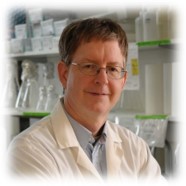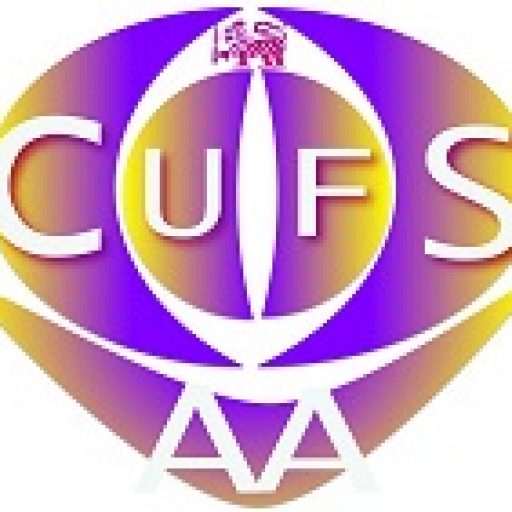The Fourth Talk of the CUFSAA-NA Distinguished Speaker Series organized in association with the Faculty of Science, University of Colombo was delivered by Dr. David Hoskin on September 20th 2022, 10:30AM Eastern Time (September 20th 2022, 8:00pm Sri Lankan Time). The details of the talk are described below.
Talk Video: View the recorded talk from the youtube link below. The details of the talk, speaker bio, and other details are described below.
Event Flyer:
Title: Iron withdrawal by selective chelators for cancer treatment
Brief Bio:  Dr. David Hoskin is Professor Emeritus in the Department of Pathology at Dalhousie University. He is also a Lifetime Honorary Member and Senior Scientist of the Beatrice Hunter Cancer Research Institute, as well as the inaugural holder of the Canadian Cancer Society/Canadian Breast Cancer Foundation- Atlantic Region Endowed Chair in Breast Cancer Research. Professor Hoskin graduated with his B.Sc. and Ph.D. degrees from McGill University and completed his Postdoctoral Training at the Samuel Lunenfeld Research Institute at the University of Toronto prior to accepting an academic position at Dalhousie University. Professor Hoskin’s publications include over 200 research and review articles detailing his studies on the anti-cancer and anti-inflammatory potential of natural source compounds, including antimicrobial peptides and phytochemicals found in common spices, fruits, and vegetables; and the manipulation of T lymphocyte signal transduction using natural source compounds and other novel agents for cancer control. The focus of Dr. Hoskin’s research career was the development of new treatments for breast cancer and other common cancers. Although retired, Professor Hoskin remains involved in teaching and cancer research at Dalhousie University. He is also an active member of the Royal Astronomical Society of Canada and serves on the Board of Directors for the Halifax Centre.
Dr. David Hoskin is Professor Emeritus in the Department of Pathology at Dalhousie University. He is also a Lifetime Honorary Member and Senior Scientist of the Beatrice Hunter Cancer Research Institute, as well as the inaugural holder of the Canadian Cancer Society/Canadian Breast Cancer Foundation- Atlantic Region Endowed Chair in Breast Cancer Research. Professor Hoskin graduated with his B.Sc. and Ph.D. degrees from McGill University and completed his Postdoctoral Training at the Samuel Lunenfeld Research Institute at the University of Toronto prior to accepting an academic position at Dalhousie University. Professor Hoskin’s publications include over 200 research and review articles detailing his studies on the anti-cancer and anti-inflammatory potential of natural source compounds, including antimicrobial peptides and phytochemicals found in common spices, fruits, and vegetables; and the manipulation of T lymphocyte signal transduction using natural source compounds and other novel agents for cancer control. The focus of Dr. Hoskin’s research career was the development of new treatments for breast cancer and other common cancers. Although retired, Professor Hoskin remains involved in teaching and cancer research at Dalhousie University. He is also an active member of the Royal Astronomical Society of Canada and serves on the Board of Directors for the Halifax Centre.
Abstract: Metastatic cancer is a leading cause of morbidity and death worldwide. Unfortunately, current treatment regimens involving surgery, radiotherapy and/or chemotherapy frequently fail in the face of aggressive cancers. Since the rapid growth and metabolism of breast cancer cells results in an increased requirement for iron, withdrawal of bioavailable iron using highly selective iron chelators has been suggested to represent a new approach to cancer treatment. In this regard, in vitro studies with DIBI, a novel iron-chelating polymer containing hydroxypyridinone iron-ligand functionality, show considerable promise. In comparison to other iron chelators, DIBI is superior to deferiprone and similar to or better than deferoxamine for inhibition of cancer cell growth. Iron withdrawal by DIBI is associated with S-phase cell cycle arrest and DNA damage resulting in cancer cell death by apoptosis. DIBI-treated cancer cells also showed increased sensitivity to growth inhibition by the chemotherapeutic drugs. In addition, iron withdrawal suppresses inflammation, which is a driver of cancer progression. Iron withdrawal from the tumor microenvironment with a selective and potent iron chelator such as DIBI may therefore prevent or inhibit tumor progression.
The talk was delivered on: September 20, 2022 10:30 AM Eastern Time (US and Canada)
Additional Ways to view: You can listen to the talk via FBLive and YouTube Live as well.
We sincerely thank Prof. Preethi Udagama, Head of the Department, Department of Zoology & Environmental Sciences, University of Colombo for delivering the vote of thanks.
This talk is moderated by Dr. Wasundara Fernando on behalf of the Speaker Series subcommittee of CUFSAA-NA.

